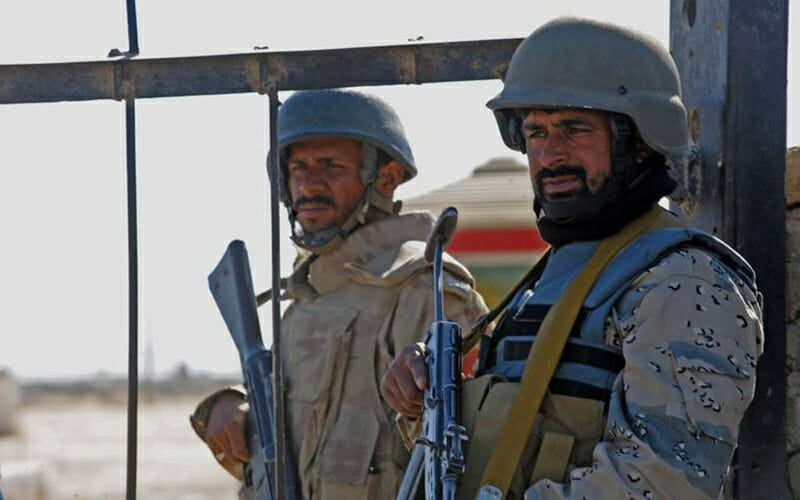
Why the United States Should Sanction Pakistan
According to multiple news sources in India, Pakistan and elsewhere, Pakistan will be placed on the Financial Actions Task Force’s (FATF) watch list for terrorist financing in the upcoming FATF meeting in June. While this is a welcome move by the global community, the United States should implement economic sanctions against Pakistan in order to undermine Pakistan’s support for terrorism throughout South Asia. Putting Pakistan on the watch list for terrorist financing will weaken Pakistan’s economy through increased transaction costs and regulatory scrutiny which will slow growth and decrease investment. However, Pakistan was on the same watch list for nearly 20 years before it was removed in 2015, and has continued to tolerate terrorist financing. Therefore, more must be done to properly punish Pakistan for its continued support of terrorism.
Pakistan has continually supported terrorists or tolerated their practices in both India and Afghanistan. In 1948, Pakistani armed Pashtun militants responsible for marauding Kashmir, and Islamabad continues to provide weapons and soldiers for Kashmiri infiltrations in addition to providing a safe haven for anti-Indian terrorist groups such as Lashkar-e-Taiba (LeT). In Afghanistan, the Soviet incursion was driven back in 1989 by the US-Pakistani backed mujahideen, but Pakistan has continued to support the Haqqani Network, an Afghan insurgent group that descended from the 1989 mujahedeen, in its ongoing fight against the United States and NATO in Afghanistan.
By sanctioning Pakistan, the United States can further restrict funding to foreign terrorist organizations which is consistent with the United States’ goals of global counter-terrorism. Trade counts for 25% of Pakistan’s GDP of almost $300 billion, and the United States accounts for 13.5% of Pakistani exports. Additionally, if the European Union, which accounts for 18% of Pakistan’s exports, and other international partners were to implement similar measures then Pakistan’s revenue could be drastically reduced. Significant reductions in revenue could force Pakistan to change course as there would be less money available for the military, ISI, state-sponsored insurgents and the public sector. Therefore, these actions could potentially place a strain on the Pakistani economy.
Sanctions must be implemented because past actions have been ineffective in curbing Pakistan’s support for terrorists. President Trump’s suspension of $900 million worth of economic and military aid has had no effect on Pakistan’s behavior, for Islamabad has escalated their attacks and infiltrations along the Kashmir Line of Control (LoC). Moreover, Pakistan can acquire military equipment and aid from China. Limited sanctions have been placed on Pakistan in the past. In May of 1998, President Clinton imposed sanctions on Pakistan through the Glenn Amendment for its testing of multiple nuclear weapons, following India’s nuclear weapons tests. Additionally, in October of 1990, President Bush was unable to certify that Pakistan did not possess nuclear weapons and used the Pressler Amendment to withhold economic and military assistance to Pakistan. Therefore, the implementation of sanctions against Pakistan is not unprecedented. However, their success depends on sweeping long-term sanctions that remain in place until serious foreign policy reform is undertaken by Islamabad.
Sanctions would have negligible effects on the United States’ economy and operations in Afghanistan. While Pakistan may close NATO supply routes into Afghanistan, aerial and Central Asian routes through the former Soviet States could be opened. Moreover, when Pakistan closed the NATO supply routes in 2011, NATO utilized the Central Asia—Russia routes. Additionally, a trade agreement between the United States and India could be established in order to offset the minor economic damages to the United States as a result of implementing economic sanctions on Pakistan. As the relationship grows between New Delhi and Washington, the sanctions on Pakistan could earn the United States a favorable trade agreement with India which is forecasted to be one of the fastest growing economies in 2018. India is a more strategic partner in countering-violent extremism throughout the South Asia sub-continent, and is committed to halting the extremism emanating from Pakistan which makes India a welcome ally and partner going forward.
Overall, the effects of economic sanctions against Pakistan are negligible in comparison to the potential benefits gained by Pakistan ending its support for terrorism throughout South Asia. If this support were ended, Afghanistan might be more easily managed by the United States and NATO as the Taliban would lose a major sponsor. Additionally, if Pakistan were to cease its support for terrorism, then the path to rapprochement with India would be cleared of a major obstacle.

